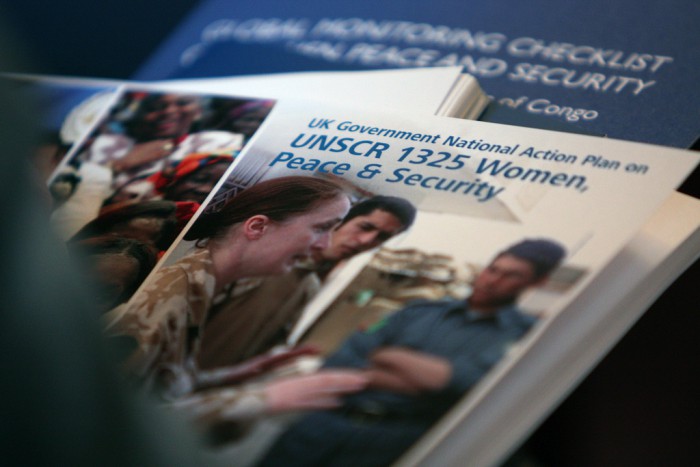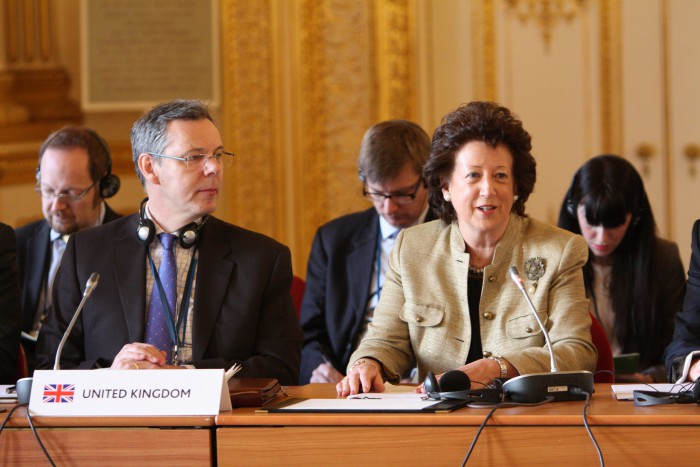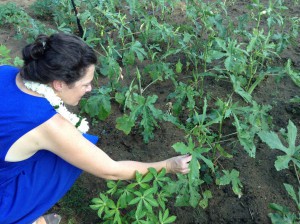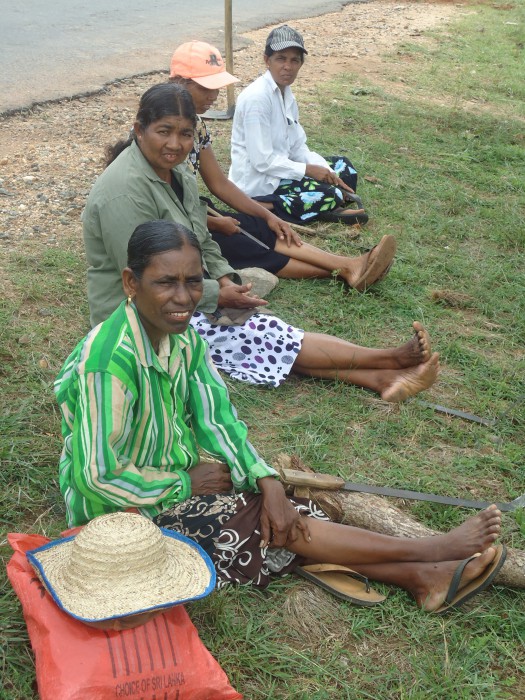13th October 2015 Colombo, Sri Lanka
Women, Peace and Security

Fifteen years ago today, the United Nations Security Council adopted Resolution 1325 – an important recognition of the inordinate impact of war on women and girls, and of the pivotal role women should and do play in conflict management, conflict resolution and building sustainable peace.

Ninety percent of civilian casualties in conflict are women and children. As the Lessons Learnt and Reconciliation Commission reported, women and children also bore the brunt of Sri Lanka’s lengthy conflict. The Report of the Office of the High Commissioner for Human Rights’ Investigation on Sri Lanka details the disturbing extent of sexual violence perpetrated as well as the forcible recruitment of children.
Six years after the end of the conflict, tens of thousands of female headed households still struggle with its legacy. I saw this for myself, when I visited the village of Kathiraveli near Batticaloa in the East, where a former Chevening Scholar set up a project to empower women through home garden systems.
 I saw how small scale irrigation systems are enabling these vulnerable families not only to feed themselves, but also to take some goods to market, and heard how greater economic stability is helping them play a fuller and more respected part in community life.
I saw how small scale irrigation systems are enabling these vulnerable families not only to feed themselves, but also to take some goods to market, and heard how greater economic stability is helping them play a fuller and more respected part in community life.
To understand the challenges these families are facing more clearly, the British High Commission is funding a project with FOKUS, who have conducted face to face research with women in Puttalam, Anuradhapura and Ampara. The next stage of the project will cover female headed households in the North as well as the many military widows in the South.
The research has highlighted a number of common challenges faced by some of Sri Lanka’s most vulnerable groups, including poverty, high levels of domestic violence and ongoing discrimination. In Puttalam, for example, 88% of female heads of households are survivors of domestic violence, usually perpetrated by relatives or neighbours. Almost half don’t report this. In Anuradhapura, 52% of female heads of households live in poverty with an average income below 10,000 LKR a month (around £50). Some military widows have lost their pensions at what would have been their husbands’ 55th birthdays, leaving them destitute. In Ampara, female heads of households complain that their samurdhi, or welfare payment, is reduced or not properly explained, causing them financial distress. Muslim women feel the absence of support in challenging discriminatory judgments by the Quazi courts.
One interviewee told the researchers: “I was only 27 when my husband died. As a woman without my husband, I faced numerous difficulties. The violence from the community at times was profound and unbearable. Sometimes, sexual violence was by the state officials. I had to do labour work to keep our income going and send my children to school. Economic pressure was huge. But I faced it somehow and raised my children.”
This research will help give communities and policy makers a common understanding of the problems, as perceived by one of Sri Lanka’s most vulnerable groups. This is an essential first step towards addressing the persistent challenges they face. I’m delighted that it is being published today – on the anniversary of the adoption of Resolution 1325 – in Sinhala and Tamil, ensuring it is accessible to all.
Identifying problems accurately is only the first step, though. Resolution 1325 has changed the way the international community thinks about peace and security. But progress in implementation has been slow. Despite clear evidence of the links between women’s participation and the success and sustainability of a peace process, only 8% of participants in peace negotiations have been women. Of the 585 peace agreements signed between 1990 and 2010, only 16% contained references to women.
The UK was among the first countries to develop a National Action Plan to implement resolution 1325. This helps the UK reduce the impact of conflict on women and girls and promote their inclusion in conflict resolution. We monitor our progress through an Implementation Plan. Today’s review is an opportunity for more countries to do the same.
The Kathiveli project was funded by the Chevening Alumni Project Fund. Its sustainability has been assured by Janakshan. The window for Chevening Scholarship applications is now open – please see www.Chevening.org.uk for more details.

Thanks for your interest in the project – I’ve passed your details onto our implementing partner, as you asked, and will ask them to follow up with you direct!
I would like to join with you all and work with you all volunteer..
Please contact me as soon as possible.